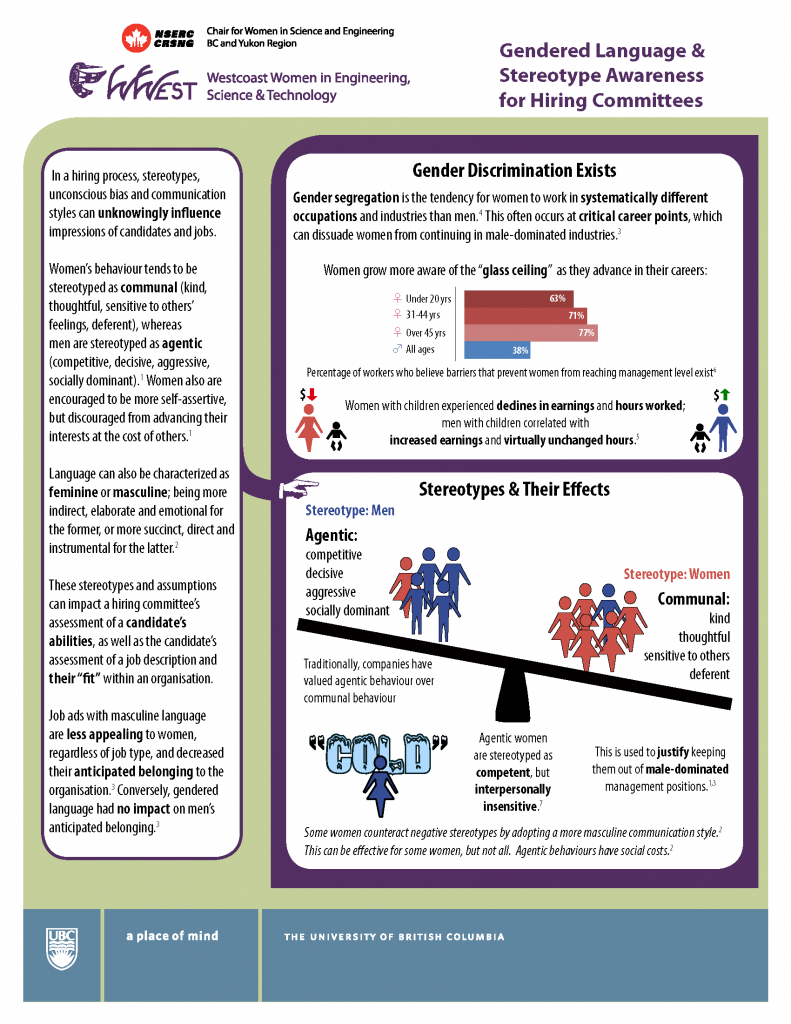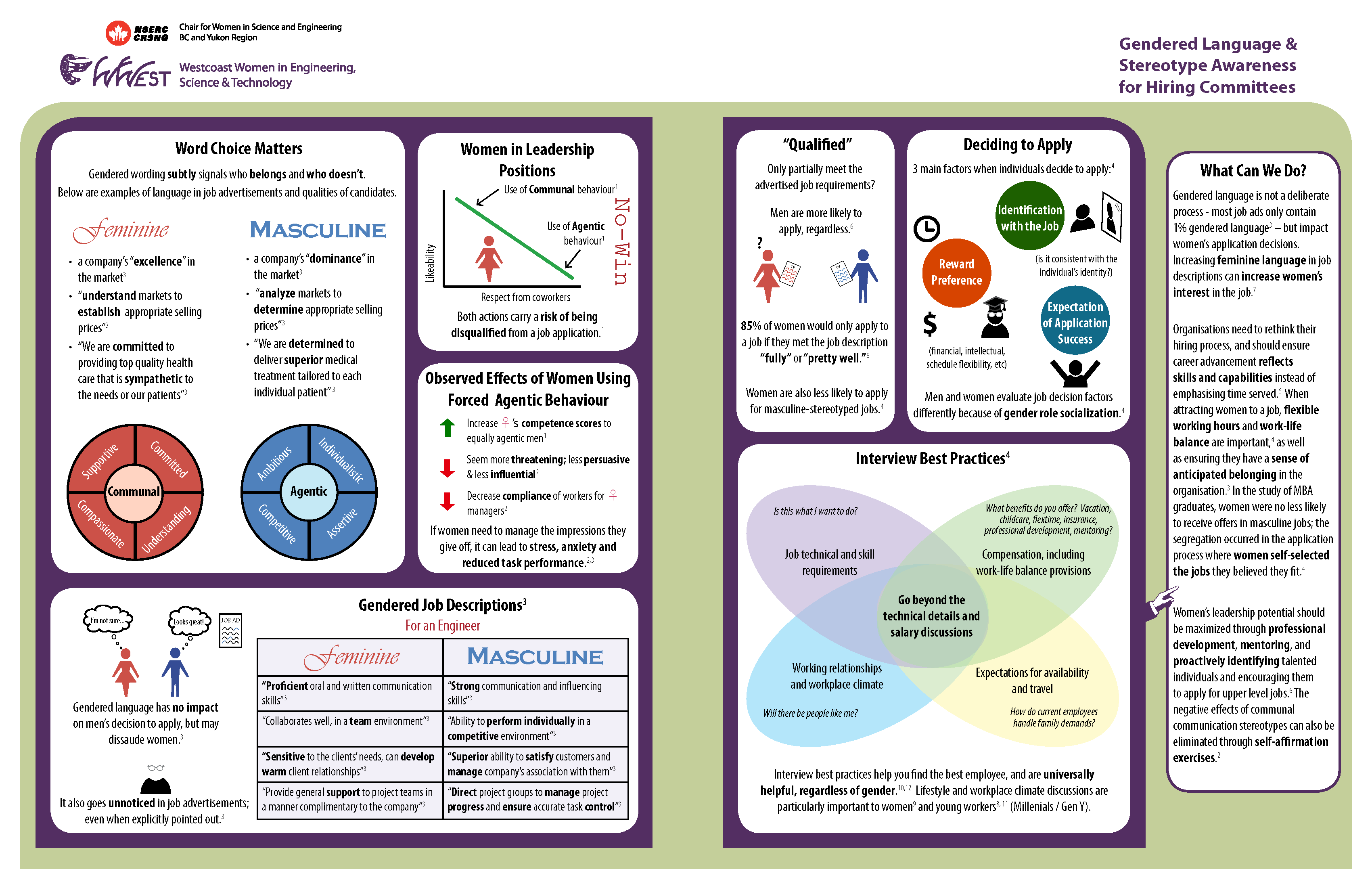In a hiring process, stereotypes, unconscious bias and communication styles can unknowingly influence impressions of candidates and jobs.
Women’s behaviour tends to be stereotyped as communal (kind, thoughtful, sensitive to others’ feelings, deferent), whereas men are stereotyped as agentic (competitive, decisive, aggressive, socially dominant).1 Women also are encouraged to be more self-assertive, but discouraged from advancing their interests at the cost of others.1
Language can also be characterized as feminine or masculine; being more indirect, elaborate and emotional for the former, or more succinct, direct and instrumental for the latter.2
These stereotypes and assumptions can impact a hiring committee’s assessment of a candidate’s abilities, as well as the candidate’s assessment of a job description and their “fit” within an organisation.
Job ads with masculine language are less appealing to women, regardless of job type, and decreased their anticipated belonging to the organisation.3 Conversely, gendered language had no impact on men’s anticipated belonging.3
Gendered language is not a deliberate process – most job ads only contain 1% gendered language3 – but impact women’s application decisions. Increasing feminine language in job descriptions can increase women’s interest in the job.7
Organisations need to rethink their hiring process, and should ensure career advancement reflects skills and capabilities instead of emphasising time served.6 When attracting women to a job, flexible working hours and work-life balance are important,4 as well as ensuring they have a sense of anticipated belonging in the organisation.3 In the study of MBA graduates, women were no less likely to receive offers in masculine jobs; the segregation occurred in the application process where women self-selected the jobs they believed they fit.4
Women’s leadership potential should be maximized through professional development, mentoring, and proactively identifying talented individuals and encouraging them to apply for upper level jobs.6 The negative effects of communal communication stereotypes can also be eliminated through self-affirmation exercises.2
References & Recommended Readings
Available on the .pdf download.
Copyright notice
Copyright © WWEST 2013
This material may be distributed for free, but must include WWEST’s branding.
It is available for co-branding; please see our co-branding page for more information.



